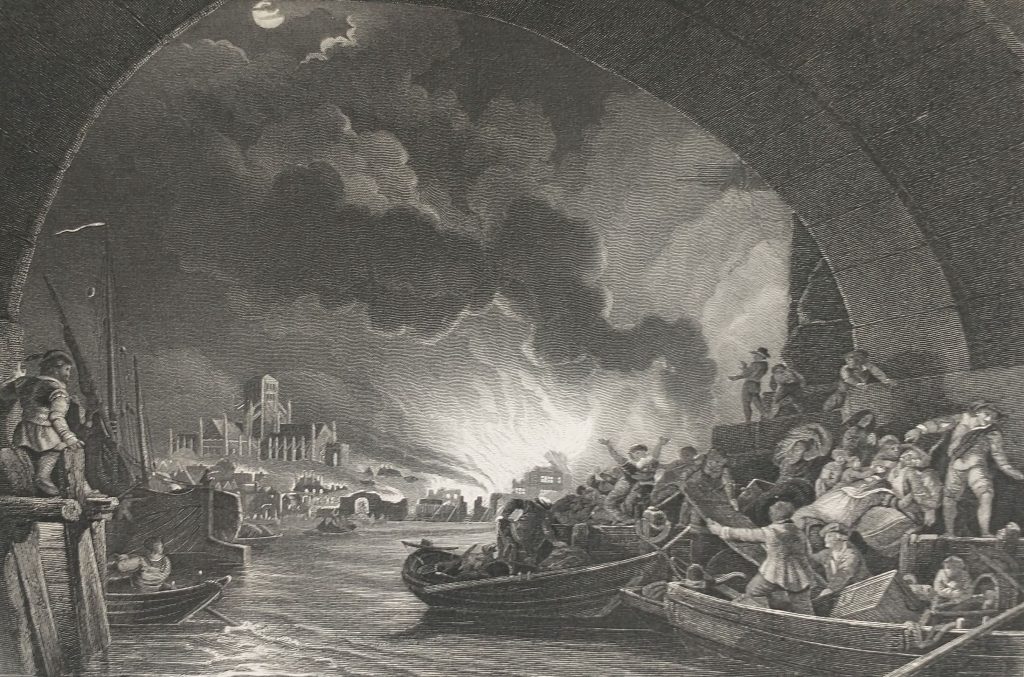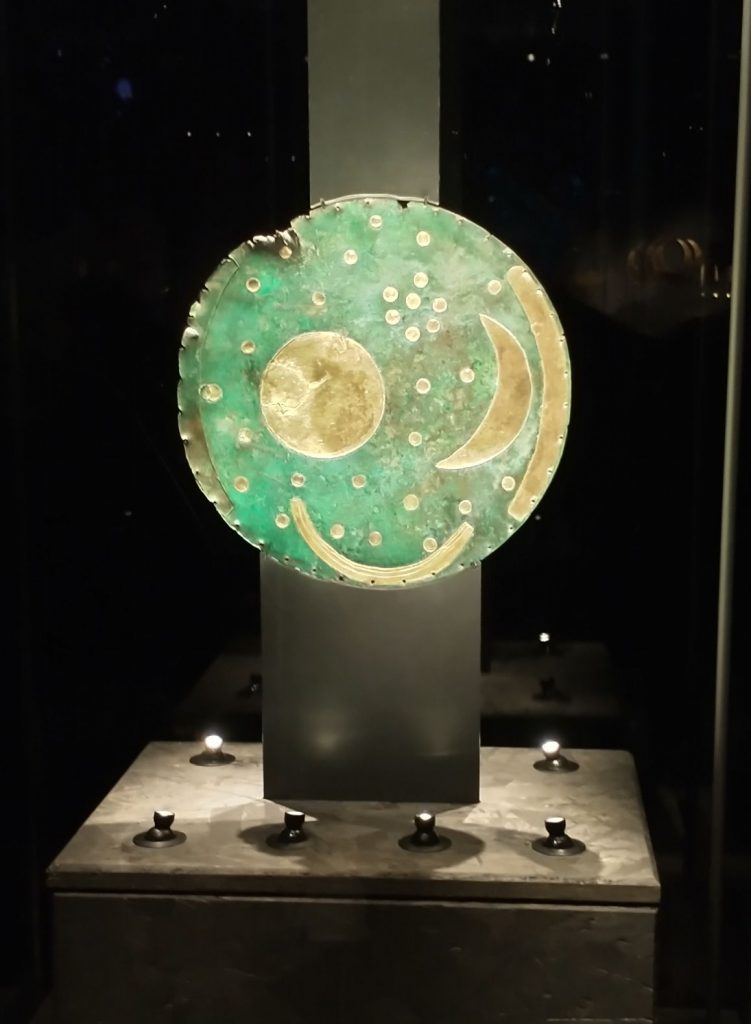Here are listed the public guided walks and tours I have currently got in my diary. I will be adding others all the time.
Roman London – Literary & Archaeology Walk 11.30am Sun 27th Apr 25 To book
Tudor London – The City of Wolf Hall 3:00pm Sun 27th Apr 25 To book
A Boy From Haggerston before the War. 6pm 1st May 2025 Shoreditch Library. Free To book:
Myths, Legends, Archaeology and the Origins of London 11.30am Sun 25th May 25 To book
The Decline And Fall Of Roman London Walk 3pm Sun May 25 To book
The Rebirth Of Saxon London Archaeology Walk 11.30am Sat 7th June 2025
The Peasants Revolt Anniversary Guided Walk 6.30pm Wed 11th June 25 To book
The Archaeology of London Walk 6.30pm Fri 11th July 2025 To Book
Tudor London – The City of Wolf Hall 11.30am 13th July 2025 To Book
Jane Austen’s London Anniversary Walk 3pm Sunday 13th July 25 To book
Roman London – Literary & Archaeology Walk 11.30 am Sat 2nd Aug 2025 To Book
Chaucer’s Medieval London Guided Walk 2:30pm Sat 2nd Aug 2025 To Book
Charles I and the Civil War. Martyrdom Anniversary Walk Jan 30th 2026 To book
For a complete list of my guided walks for London Walks in 2025 look here
Archive of Guided Walks/Events for 2025
Every year I keep a list of my guided walks, and tours on my blog the ‘Almanac of the Past’. Here are the walks I have so far done in 2025.
Here is my ‘Almost Complete List of Guided Walks, Study Tours, Lectures’
Ring in the New Year Virtual Guided Walk

Monday 1st January 2025 7.00 pm
On this Virtual Walk we look at how London has celebrated the New Year over the past 2000 years.
The New Year has been a time of review, renewal, and anticipation of the future from time immemorial. The Ancient Britons saw the Solstice as a symbol of a promise of renewal as the Sun was reborn. As the weather turns to bleak mid winter, a festival or reflection and renewal cheers everyone up. This idea of renewal was followed by the Romans, and presided over by a two headed God called Janus who looked both backwards and forwards. Dickens Christmas Carol was based on redemption and his second great Christmas Book ‘The Chimes’ on the renewal that the New Year encouraged.
We look at London’s past to see where and how the New Year was celebrated. We also explore the different New Years we use and their associated Calendars – the Pagan year, the Christian year, the Roman year, the Jewish year, the Financial year, the Academic year and we reveal how these began. We look at folk traditions, Medieval Christmas Festivals, Boy Bishops, Distaff Sunday and Plough Monday, and other Winter Festival and New Year London traditions and folklore.
At the end, we use ancient methods to divine what is in store for us in 2023.
The virtual walk finds interesting and historic places in the City of London to link to our stories of Past New Year’s Days. We begin, virtually, at the Barbican Underground and continue to the Museum of London, the Roman Fort; Noble Street, Goldsmiths Hall, Foster Lane, St Pauls, Doctors Commons, St. Nicholas Colechurch and on towards the River Thames.
The Civil War, Restoration and the Great Fire of London Virtual Tour

7:30pm Fri 30th January 2025
January 30th is the Anniversary of the execution of Charles I and to commemorate it we explore the events and the aftermath of the Civil War in London.
Along with the Norman Conquest of 1066 and winning the World Cup in 1966 the Great Fire in 1666 are the only dates the British can remember!
And we remember the Great Fire because it destroyed one of the great medieval Cities in an epic conflagration that shocked the world.
But it wasn’t just the Great Fire that made the 17th Century an epic period in English History. There was a Civil War, beheading of the King, a Republic, a peaceful Restoration of the Monarch, the last great plague outbreak in the UK, the Glorious Revolution and the Great Wind.
The Virtual Walk puts the Great Fire in the context of the time – Civil War, anti-catholicism, plague, and the commercial development of London.
The walk brings to life 17th Century London. It starts with the events that lead up to the Civil War concentrating on Westminster and ends with a vivid recreation of the drama of the Fire as experienced by eye-witnesses. Route includes: Westminster, Fish Street Hill, Pudding Lane, Monument, Royal Exchange, Guildhall, Cheapside, St Pauls, Amen Corner, Newgate Street, Smithfield.
Roman London – Literary & Archaeology Walk
11.30 am Sun 9th Feb 2025 Monument Underground Station

This is a walking tour features the amazing archaeological discoveries of Roman London, and looks at life in the provincial Roman capital of Londinium.
This is a walking tour that features the amazing archaeological discoveries of Roman London, and looks at life in the provincial Roman capital of Londinium.
Our Guides will be Publius Ovidius Naso and Marcus Valerius Martialis who will be helped by Kevin Flude, former Museum of London Archaeologist, Museum Curator and Lecturer.
We disembark at the Roman Waterfront by the Roman Bridge, and then explore the lives of the citizens as we walk up to the site of the Roman Town Hall, and discuss Roman politics. We proceed through the streets of Roman London, with its vivid and cosmopolitan street life via the Temple of Mithras to finish with Bread and Circus at the Roman Amphitheatre.
Zinger Read: Talk about a high-quality one-two punch. This walk investigates the groundbreaking archaeological discoveries of Roman London. And then it reconstructs life in a provincial Roman capital using archaeological and literary sources. Discoveries – insights – like flashes of lightning in a cloud. We begin at the site of the Roman bridge. We might be decent young Roman citizens in togas, having this and that bit of
explained to us as we make our way towards the Roman Town Hall. From there we head to the site of the excavation called ‘the Pompeii of the North.’ Followed by the Temple of Mithras. We finish with a walk along the Roman High Street in order to end at the site of the Roman Amphitheatre. So, yes, welcome to London as it was 2,000, 1,900, 1,800, 1,700 and 1,600 years ago. And, yes, the walk’s guided by a real expert, the distinguished emeritus Museum of London archaeologist Kevin Flude. That means you’ll see things other people don’t get to see, delve into London via fissures that aren’t visible, let alone accessible, to non-specialists.
REVIEWS
“Kevin, I just wanted to drop you a quick email to thank you ever so much for your archaeological tours of London! I am so thrilled to have stumbled upon your tours! I look forward to them more than you can imagine! They’re the best 2 hours of my week! 🙂 Best, Sue
Jane Austen’s London Anniversary Guided Walk

2.30 pm Sunday 9th Feb 2025
Green Park underground station, Green Park exit, by the fountain To book
| Also | |||||
| 9 February 2025 | Sunday | 2.30 pm | 4.30 pm | ||
| 8 March 2025 | Saturday | 2.30 pm | 4.30 pm | ||
| 6 April 2025 | Sunday | 11.30 am | 1.30 pm |
2025 is the 250th Anniversary of Jane Austen’s Birth in Steventon, Hampshire. We celebrate her fictional and real life visits to Mayfair, the centre of the London section of Sense & Sensibility and where Jane came to visit her brother
“It is a truth universally acknowledged, that a Jane Austen devotee in possession of the good fortune of a couple of free hours today must be in want of this walk.”
People associate Jane Austen and her characters with a rural setting. But London is central to both Jane Austen’s real life and her literary life. So, this tour will explore Jane’s connections with London and give the background to Sense and Sensibility, a good part of which is based in this very area. We begin with the place Jane’s coach would arrive from Hampshire, and then walk the streets haunted by Willougby; past shops visited by the Palmers, the Ferrars; visit the location of Jane Austen’s brother’s bank and see the publisher of Jane’s Books. The area around Old Bond Street was the home of the Regency elite and many buildings and a surprising number of the shops remain as they were in Jane Austen’s day.
Jane Austen’s ‘A Picture of London’ in 1809 Virtual Walk

7.30 27th January 2025
With the help of a contemporary Guide Book, Jane Austen’s letters, and works we explore London in 1809.
‘The Picture of London for 1809 Being a CORRECT GUIDE to all the Curiosities, Amusements, Exhibitions, Public Establishments, and Remarkable Objects in and near London.’
This Guide Book to London might have been on Henry Austen’s shelf when his sister, Jane, came to visit him in London. But it enables us to tour the London that Jane Austen knew in some detail. We will look at the Curiosities as well as the shopping, residential, theatres areas as well as the Port, the Parks and the Palaces.
The guided walk is a thank you to Alix Gronau, who, having been to one of my lectures in 1994, wanted the book to come to me. I have had the book restored and am using it to explore London in 1809.
Jane Austen’s London Anniversary Walk
Jane Austen’s London Anniversary Walk 2.30 pm Sunday 9th February 25 To book
A Virtual Tour of Jane Austen’s Bath

7.30pm 10th February 2025
Tudor London – The City of Wolf Hall 11.30am Sat 22nd Feb 25
Myths, Legends, Archaeology and the Origins of London

2.30pm Sat 22nd February 2025 Tower Hill Underground
The walk tells the stories of our changing ideas about the origins of London during the Prehistoric, Roman and Saxon periods.
The walk is led by Kevin Flude, a former archaeologist at the Museum of London, who has an interest both in myths, legends and London’s Archaeology.
The walk will tell the story of the legendary origins of London which record that it was founded in the Bronze Age by an exiled Trojan and was called New Troy, which became corrupted to Trinovantum. This name was recorded in the words of Julius Caesar; and, then, according to Legend, the town was renamed after King Ludd and called Lud’s Dun. Antiquarians and Archaeologists have taken centuries to demolish this idea, and became convinced London was founded by the Romans. Recently, dramatic evidence of a Bronze Age presence in London was found.
When the Roman system broke down in 410 AD, historical records were almost non-existent, until the Venerable Bede recorded the building of St Pauls Cathedral in 604 AD. The two hundred year gap, has another rich selection of legends. which the paucity of archaeological remains struggles to debunk.
The walk will explore these stories and compare the myths and legends with Archaeological discoveries.
The route starts at Tower Hill, then down to the River at Billingsgate, London Bridge, and into the centre of Roman London.
Roman London – Literary & Archaeology Walk 11.30am Sat Mar 8th 25
Jane Austen’s London Anniversary Walk 2.30pm Sat 8th Mar 25
The Decline And Fall Of Roman London Walk 11.30 Sat 22nd March 2025
London. 1066 and All That Walk Sat 2.30pm 22nd March 2025
Jane Austen’s London Anniversary Walk 11.30am Sun 6th Apr 25
Chaucer’s Medieval London Guided Walk 2:30pm Sun 6th Apr 25
and
Chaucer’s London To Canterbury Virtual Pilgrimage 7.30pm Friday 18th April 25 To book

A Walk around Medieval London following in the footsteps of its resident medieval poet – Geoffrey Chaucer
One of the spectators at the Peasants Revolt was Geoffrey Chaucer, born in the Vintry area of London, who rose to be a diplomat, a Courtier and London’s Customs Officer. He lived with his wife in the Chamber above the Gate in the City Wall at Aldgate. His poetry shows a rugged, joyous medieval England including many scenes reflecting life in London. His stories document the ending of the feudal system, growing dissatisfaction with the corruption in the Church, and shows the robust independence with which the English led their lives.
His work helped change the fashion from poetry in French or Latin to acceptance of the English language as suitable literary language. This was helped by the growth of literacy in London as its Merchants and Guildsmen became increasingly successful. In 1422, for example, the Brewers decided to keep their records in English ‘as there are many of our craft who have the knowledge of reading and writing in the English idiom.’
Chaucer and other poets such as Langland give a vivid portrait of Medieval London which was dynamic, successful but also torn by crisis such as the Lollard challenge to Catholic hegemony, and the Peasants who revolted against oppression as the ruling classes struggled to resist the increased independence of the working people following the Black Death.
A walk which explores London in the Middle Ages, We begin at Aldgate, and follow Chaucer from his home to his place of work at the Customs House, and then to St Thomas Chapel on London Bridge, and across the River to where the Canterbury Tales start – at the Tabard Inn.
This is a London Walks event by Kevin Flude
Here are previous archive of guided walks and events
Archive of Events/Walks 2024
Archive of events/Walks 2023
Archive of Events/Walks 2022
Archive of Recent Walks (2021)
Archive of Resent Walks (2019-2020)
December 31st—New Year’s Eve

First Footing
The first person to set foot into your house needs to be a ‘Tall, well-made man’. Dark-haired men are preferred to fair-haired, but he must not be dressed in black, nor be from the ‘professions’ (those people who can counter-sign your passport). He must not carry a knife, but he must bring gifts, particularly a loaf of bread, a bottle of whisky, a piece of coal or wood, and a silver coin. Silence is to welcome him to the house until he puts the coal on the fire, pours a glass of the whisky and greets the family. He will bring in the luck through the front door on the stroke of midnight; the bread symbolising that you will be well-fed, the fuel that you will be warm and safe, the whisky that you will have fun and the coin will bring prosperity. Your first-footer will take the old year and its bad-luck out of the back door when he leaves.
The weather today will be reflected on the 7th month.
Or as a Scottish Rhyme has it (quoted in the Perpetual Almanac)
If New Year’s Eve night-wind blow south
That betokens warmth and growth
If west, much milk, and fish in the sea
If North, much cold and storms will be
If east, the tress will bear much fruit.
If north-east, flee it, man and brute,
The wind is currently south-west, so it would seem we are in for a year of warmth and growth, with much milk and fish in the sea.
New Year’s Eve—The White Heather Club and Hootenanny December 31st

On the seventh day of Christmas
My true love sent to me:
7 Swans a Swimming; 6 Geese a Laying;
5 Golden Rings;
4 Calling Birds; 3 French Hens; 2 Turtle Doves
and a Partridge in a Pear Tree
When is Twelfth Night?
First an admission, there is a lot of confusion out there as to which is the First day of Christmas. According to my muse, Charles Kightly, the first day of Christmas is Boxing Day, the 26th of December. This makes Twelfth Night January 6th, which is Epiphany – when the three wise men rocked up with their fabulous presents.
But Epiphany is a Christian day of importance, while Twelfth Night is a bit of a knees up. So many authorities begin the counting on Christmas Day. So, Twelfth Night is, in that case, Epiphany Eve, i.e. January 5th. Have a look at Notes&Queries for different viewpoints.
One suggestion was that the Church had to accept that the Twelve Days of Christmas were taken up with pagan activities and allowed it to go on until the night before Epiphany. I think you will have to make your own mind up as to when is Twelfth Night.
New Year’s Eve
My post on New Year’s customs is here for you to see.
This is a day of preparation, and perhaps of anxiety. Have we got an invitation from anyone tonight? Is anyone going to come to our party? Can I take another blow out feast, a belly full of alcohol and a very late night? I’ve just lost my Christmas weight and you want me to come for a big feast?
For years in my life, New Year’s Eve was spent with the parents watching some inexplicable variety show hosted in Scotland. Google has helped me remember that it was the ‘White Heather Club’ hosted by Andy Stewart. Up to 10 million people watched this between 1960 and 1968. I never understood the pleasure of it, and it seemed a symbol of an old-fashioned world that was passing and irrelevant.
More recently, if not spent at a party, New Year’s Eve is spent with Jools’ Annual Hootenanny, which is a music show masquerading as a live New Year’s Eve party. It features really excellent bands and singers. It is, however, recorded earlier in December (15th, 20th are dates I have seen) and hence a New Year’s fake. Here is a 2007 excerpt staring Madness’s ‘House of Fun’. The fun of this is to spot the stars grooving along to the music.
New Year’s Day needs a lot of preparation. Folklore suggests that this should include finishing off any unfinished work or projects, as a task carried forward is ill-omened. Your accounts for the year should be reconciled. As Charles Dickens suggests in the Chimes, your moral account with the world should also be addressed so that you can come into the New Year with a clean slate, good conscience and plans for a better new year. And don’t we all need that for 2024!
To post mentioned above about the customs of New Years is below: k:
The Lord of Misrule & London, December 30th

On the sixth day of Christmas
My true love sent to me
6 Geese a Laying;
5 Golden Rings;
4 Calling Birds; 3 French Hens; 2 Turtle Doves
and a Partridge in a Pear Tree
The Lord of Misrule, Masters of the Revels, and Boy Bishops
The Roman festival of Saturnalia, held between 17th and 23rd of December, included reversing rules so that slaves, ruled and masters served. In the medieval period, the disorder of Christmas was continued with the election of Lords of Misrule, Masters of the Revels, and Boy Bishops.
John Stow’s, Survey of London
He was London’s first great historian, wrote of the Lord of Misrule in London. In this section, Stow begins the role of the Lords of Misrule at Halloween and continues it until Candlemas, in erly February. See my post here for more details on Candlemas. This is what Stow says:
Now for sports and pastimes yearly used.
First, in the feast of Christmas, there was in the king’s house, wheresoever he was lodged, a lord of misrule, or master of merry disports, and the like had ye in the house of every nobleman of honour or good worship, were he spiritual or temporal. Amongst the which the mayor of London, and either of the sheriffs, had their several lords of misrule, ever contending, without quarrel or offence, who should make the rarest pastimes to delight the beholders.
These lords beginning their rule on Alhollon eve, continued the same till the morrow after the Feast of the Purification, commonly called Candlemas day. In all which space there were fine and subtle disguisings, masks, and mummeries, with playing at cards for counters, nails, and points, in every house, more for pastime than for gain.
Against the feast of Christmas every man’s house, as also the parish churches, were decked with holm, ivy, bays, and whatsoever the season of the year afforded to be green. The conduits and standards in the streets were likewise garnished; (…) , at the Leaden hall in Cornhill, a standard of tree being set up in midst of the pavement, fast in the ground, nailed full of holm and ivy, for disport of Christmas to the people…
John Stow, author of the ‘Survey of London‘ first published in 1598. Available at the wonderful Project Gutenberg: ‘https://www.gutenberg.org/files/42959/42959-h/42959-h.htm’

Holm is an evergreen oak called Quercus ilex. John Stow talks about the Tree in Leadenhall Street being destroyed in the great wind of 1444 which you can read about here. You might also like to see the following posts, which include information about John Stow and London’s customs, and churches.
First Published on December 30th 2023 and revised in 2024
Becket & St. Thomas Day & Wassailing December 29th

On the fifth day of Christmas
my true love sent to me:
5 Golden Rings; 4 Calling Birds; 3 French Hens; 2 Turtle Doves
and a Partridge in a Pear Tree
St Thomas Becket
The fifth day of Christmas is dedicated to Thomas Becket, our most famous Archbishop of Canterbury. He was martyred at Canterbury on this day in 1170. But, he was made a Saint in 1173 in double-quick time, in order that the Pope could rub Henry II’s nose in his complicity with the murder.
Becket was a Londoner from a well-known London family, who became a friend of Henry II. Henry was troubled by the freedoms and fees owed to the Catholic Church. So he thought it would be a good idea to make his friend Archbishop. But as soon as Becket became Archbishop he went ‘native’, became a very stubborn and adamant defender of the Pope’s privileges in Britain. After various confrontations, Henry said, in anger, ‘Who will rid me of this troublesome priest?’ And three knights took him at his word, so Becket was murdered in the Cathedral in Canterbury.

Lousy Becket
Last year,. I wrote: ‘Next year I will add the story of Becket’s lousy habit.’ In November 2023 Katherine Harvey wrote an article, in History Today’ called ‘Lousy Saints’. It began with the discovery that Becket wore a hair shirt:
‘This goat hair underwear was swarming, inside and out, with minute fleas and lice, masses of them all over in large parches, so voraciously attacking his flesh that it was nothing short of a miracle that he was able to tolerate such punishment.’
Becket was a former-sophisticated courtier, and so the assumption was that Becket sought this discomfort deliberately. He also concealed it under magnificent clothes. The monks duly cited the lice as evidence of the piety of the man who was willing to suffer for his religion. They even suggested that the daily agony of the lice was worse than the swift death at the hands of the Knights. Many other pious clerics were similarly lousy by choice. Society as a whole found uncleanliness of this magnitude disgusting and had the technology to avoid it. Becket himself had a manservant to look after his clothes and access to a bath, but limited his baths to once every 40 days by choice. The fact that it was a choice is why people admired such discipline on the part of people like Becket.
Bridge and Pilgrimage
Soon, a new, magnificent bridge was built to replace the wooden London Bridge. In the centre of that Bridge was a grand Chapel dedicated to St Thomas Becket. It was refurbished by the renowned architect Henry Yevele (c. 1320 – 1400). It was here that pilgrims began their pilgrimage to Canterbury. That is, they travelled from where he was born, to where he was martyred.

The Legend of the Epic Walk of Mathilda Becket
In London, there was a legend that his mother, Mathilda, was a Muslim who fell in love with Thomas’s dad, Gilbert, during the Crusades. She helped him escape captivity and then found her own way from Acre to London. She made the journey knowing only the name ‘London’ in English and walked most of the way.
On St Thomas Day, people walked around St Paul’s multiple times to commemorate her walk of love. The story was told as true from the 13th Century until the 19th Century. Then researchers found that Mathilda had more prosaic Norman origins. The speculation is that the foundation of the Hospital St Thomas of Acre on the site of Becket’s birthplace led to the story of his connection with Acre. The story is told here:

Henry VIII’s hatred of Becket
When Henry VIII began the reform of the Church of England he was particularly keen to end the cult of Becket, this rebel against one of the great Kings of England.
‘Thomas Becket, sometime archbishop of Canterbury, shall no longer be named a saint, as he was really a rebel who fled the realm to France and to the bishop of Rome to procure the abrogation of wholesome laws, and was slain upon a rescue made with resistance to those who counselled him to leave his stubbornness. His pictures throughout the realm are to be plucked down and his festival shall no longer be kept, and the services in his name shall be razed out of all books.‘
Westminster, 16 Nov. 30 Hen. VIII’
A blog post by the British Museum highlights some fascinating research. Henry’s government ordered the deleting of unacceptable content in church service books. The last phrase of the quotation above show this. Research into the deletion of content found that it was very varied in extent, except where it concerned Becket. The vast majority of references to him were either completely defaced or mostly defaced, suggesting that Henry had a particular hatred of Becket.
Henry made a lot of money from the gold and jewels that were stripped from Becket’s magnificent shrine at Canterbury Cathedral.
Another post on Becket is here.
Wassailing

The Twelve Days of Christmas are full of wassailing.
Was hail Drinc hail
The name comes from the Anglo-Saxon version of ‘Cheers’ or good health. Its ceremonial use is described by Geoffrey of Monmouth, writing in 1135.
‘From that day to this, the tradition has endured in Britain that the one who drinks first at a banquet says “was hail” and he who drinks next says “drinc hail.”‘
Geoffrey is explaining how Vortigern betrayed Britain for the love of Rowena. She was the Saxon King Hengist’s daughter, and, incidently, speculating on the origins of the tradition of wassail.
Wassail
This has at least two different facets. Firstly, it is a formal drinking tradition at the centre of Christmas hospitality. Secondly, it is part of the tradition of the Waits, the Mummers, and Carol Singers. These groups who go around the village singing or performing in exchange for a drink or some food, or money.
Wassailing is either a gently social activity, or it is an anti-social custom in which the drunkards get to stand outside your house caterwauling and in effect demanding drink with menaces. Imagine a Trick or Treat with the drunkards from the pub!
A Wassail bowl would be full of some form of mulled alcohol or hot punch. A couple of pints of ale or cider, a pint of wine/brandy/mead, sugar, cinnamon, and nutmeg. You should have an apple or crab-apple floating in the bowl. To find out more, look at ‘British Food, a History’ here.
‘Into the bowl is first placed half a pound of sugar in which is one pint of warm beer; a little nutmeg and ginger are then grated over the mixture, and 4 glasses of sherry and 5 pints of beer added to it. It is then stirred, sweetened to taste and allowed to stand covered for 2 to 3 hours. Roasted apples are then floated on the creaming mixture and the wassail bowl is ready.‘
The Curiosities of Ale and Beer, by John Bickerdike, published about 1860 from a Jesus College, Oxford recipe of 1732. (From Recipes of Old England by Bernard N. Bessunger
Wassail in the Orchard
It seems particularly associated with apple trees. On New Year’s Eve, wassallers went to the oldest tree in the apple orchard. There they poured a liberal dose of wassail over the roots of the tree. Then they pulled down the branches to dip the end of the branches in the punch. They decorated the tree, and then drank the wassail themselves.
Geoffrey of Monmouth tells us that the word means ‘Good Health’ or as we would say ‘Cheers!’
First Published on 29th December 2022, republished in December 2023, 2024
Childermas & Christmas Games December 28th

On the fourth day of Christmas
My true love sent to me
Four calling birds, Three French hens, Two turtle-doves
And a partridge in a pear tree.
Holy Innocents Day or Childermas is dedicated to children on the day Herod ordered the slaughter of children aged two or under, in an attempt to kill the prophesied Messiah.
It is, therefore, as far as folklore is concerned, an ill-omened day so don’t begin any new enterprise or, indeed, attempt to go back to work. And remember, as Childermas falls on a Saturday this year, Saturdays throughout the year are all ill-omened days. Weather wise, as the fourth day of Christmas is warm, expect the fourth month, April to be similarly warm.
Christmas Games
So, despite your desire to go back to work, it’s best to spend the time in Christmas Games. The one I remember, most fondly, is pick-up-sticks or spillikins. You drop a pile of sticks onto a table-top and then have to pick up as many sticks as you can without disturbing any others. Your go ends when you move a stick. Different sticks have different values.
Another game we played at parties was, I discovered when researching for my Jane Austen’s Christmas Walk, also played in the Austen family. They called it Bullet Pudding. I don’t think we had a name for it, but it involves putting flour in a bowl, upending it on a plate, putting a bullet (in our case a coin) on the top. Players cut off bits of the flour until the coin falls into the basin and the unlucky player (me this year!) has to pick it up with his teeth.

I have moved all the 18th Century Jane Austen Christmas Games content from here to the page shown below, as it was repetitive.
As the post partly concerned bullet pudding, here is a photo of the one we played with on 24th December, my 97-year-old dad is in the background. You can see what a messy game it can be!
Santa Klaus for the Elite
I enclose a link to a discussion about the origins of the American Santa Klaus and how this was a method for the elite to keep control of the rowdy working class in New York. The argument, in a nutshell, is that the folk Christmas was outside and rowdy, while Clement Moore who wrote “A Visit from St. Nicholas” introduced a domesticated indoor middle class version of Father Christmas. It’s a fascinating spin on the traditional story.
First written on December 28th 2022, revised and republished in December 2023, 2024
St John’s Day. Forecasting the Weather. December 27th

On the third day of Christmas
My true love sent to me:
3 French Hens
2 Turtle Doves
And a Partridge in a Pear Tree
Folklore is full of risible methods of forecasting the future and Gervase Markham’s ‘The English Husbandman of 1635 is no exception. He says:
‘What weather shall be on the sixth and twentieth day of December, the like weather will be all the month of January.’
Then and so on for the 12 days of Christmas. Please note that he numbers the 12 days from the 26th, not as I have done from the 25th. I deal with this in one of the forthcoming posts.
So the weather today, the 27th will be the weather ‘the following February’ if you follow Markham, or March if you follow me, and so on until the 12th Day when that will give you the weather on December 2025.
According to Gervase’s method, then weather in early 2025 will be unusually warm.
This is St, John’s Day, he who was loved by Jesus and wrote the Gospel making him the patron saint of booksellers, publishers, printers and writers. Lecterns in the Church of England are normally shaped as an Eagle as this is the symbol of St John, as a writer of grace and power, and a messenger of Authority from God.

John the Evangelist was identified as John the Apostle. In the Gospel, an unnamed disciple is called ‘the disciple who Jesus loved’ who is also said to have ‘borne witness and wrote’ the gospel according to John. There are also three letters attributed to the same author, as well as the Book of Revelations. It is still a controversial subject, but Revelations is generally thought to be by a different John. John He was not martyred.
Remember, on 1st January 7.30 I am doing my annual ‘Ring in the New Year’ virtual walk where I look at all things new year. To see more details click here:
First Published in December 2021, revised and republished in December 2023, 2024
Boxing Day & St Stephens Day December 26th

On the second day of Christmas
my true love sent to me:
2 Turtle Doves
and a Partridge in a Pear Tree
Feast Day of St Stephens
Sorry, this post is out of order. But I typed the date in wrong so you didn’t get it on Boxing Day.
It is the Feast day of St Stephen. He was the first Christian Martyr and was stoned to death not long after Jesus’ apotheosis. He was a deacon in the early Church, brought before the Sanhedrin for blasphemy. At the trial, he made a long speech outraging the audience. St Paul was in the audience (aka Saul).
Stephen attacked the importance of the Temple to Judaism, making parallels with idolatry. Perhaps, I wonder, this explains why there are so few early Christian Churches identified in the archaeological record? Were they consciously avoiding large Temple Basilican structures to differentiate themselves from pagan religions?
Wrens & Presents
The 26th is the day when Wrens could be hunted. Read my post about Robins and Wrens and their seasonal importance here. Also, the day, people gave presents (Boxes) to servants and working people. Other days for presents included St Nicholas’s Day (December 6th), Christmas Eve, Christmas Day, New Year’s Day, and Twelfth Night.
St Stephens Walbrook
Wren’s most beautiful Parish Church is dedicated to St Stephen. It is one of the first Parish Churches to have a dome. It also has a splendid Altar designed by Henry Moore. I took a Swedish Choir around the City of London on a guided walk. St Stephen’s was open, and, once inside, they just fancied the acoustics. So, they sang. I recorded. Listen below:
If you wish to read the post on St Lucy click here:

Victorian Boxing Day
In 1858,James Ewing Richie wrote about ‘Boxing Night’ in ‘The Night Side of London’. I’ve mixed it up with another source. So here is a list of the people who might come knocking at the door for their traditional Boxing Day Box.
Richie’s advice was to tie up your knocker to avoid paying these people:
The Chimney sweep. Then varlets playing French Horns pretending to be the Waits – {The Waits were licensed musical beggars}
Then came the Turncock, who switched the water supply to your side of the street on alternative days. Followed by the Postman, the Dustman; the Road Waterer in summer, and the Road Scrapper in Winter. After this, the real Waits turned up for a musical turn. Then the Lamplighter, the Grocer’s Boy and the Butcher’s Boy.
I imagine the Knocker-upper also got a Box. My grandmother told me about the knocker-upper in Old Street in the early Twentieth Century. He would tap on the window with his long stick to wake up those people without a reliable clock.

Richie records that he had to give a tip to 6 people who wished him a Happy Christmas on his way to work. The tip he gave was half a crown each. He thought his wife would be lucky to get away with a shilling per person for the trade men listed above. Strange that he gave more than twice as much to random strangers than his wife gave to people who served them all year. Perhaps this reflects his belief that the size of his tip reflected his position in society. It is all curmudgeonly. This is probably because he believed it would be spent on drink, leading to the miseries of drunkenness.

First Published on Dec 26th 2022, Republished December 2023, 2024
.
Birthday Of The Sun December 25th
The First Day of Christmas, my true love sent to me a Partridge in a Pear Tree

Dies Natalis Solis Invicti
On the 25th December were born Jesus, Mithras, Attis, Saturn, Apollo, and the Invincible Sun.
The Sun Gods have quite a complicated interrelationship. Zeus, and Apollo are both also considered to be Sun Gods. Apollo is particularly interrelated to Helios, the Greek God who drives the Chariot that carries the Sun across the skies every day. The Romans had a God called Sol who some say was a deity who declined to be of minor importance, until the transexual Emperor Elagabalas and then Aurelian in 274 AD revived the cult. Sol Invictus was the focus of Constantine the Great, and has been suggested as a response of the Romans to a trend towards monotheism in the later Roman period. Sol for Constantine was a gateway God to Christianity.
It is also notable that early worship of Jesus is full of solar metaphors, Jesus being, for example, the light of the world. Churches are also virtually all orientated East West, aligned with the rising and setting suns. The Altar is always at the East End, and effigies on tombs face the East.
Did the Celts have a sun-god? Belenos is a contender, but linguists are proposing his name does not come from words meaning bright but from strong. The God Lugh’s name is suggested to mean ‘shining’ but his attributes are more of a warrior than a sun god. Taranis is probably the best candidate, but he is more of a sky or thunder god than specifically a sun god. However, his symbol is a wheel and the wheel is symbolic of the turning of the year.

The Golden Wheel from Haute Marne in France, (Public Domain, Wikipedia)
His 8 spoked wheel is said to be symbolic of the Sun and it represents the division of the year by the 4 quarterly sun festivals (Winter Solstice, Spring Equinox, Summer Solstice and Autumn Equinox) and the 4 cross-quarter festivals, (Samhain or Halloween, Imbolc or Candlemas, Beltane or May Day, Lughnasa or Harvest Festival).
December 25th is a few days after our reckoning of the Solstice but it was the date of the Roman Solstice.
Christmas Cake
Today, you might be tucking into a Christmas Cake (originally eaten on Twelfth Night). Now, I know many Americans have a bizarre belief that fruit cake is the cake of the devil, something you receive as a gift and give away to someone else, as most Americans hate it. More fool them for missing out on one of the delights of the Christmas period, that and cold turkey sandwiches. Christmas Cake is made on stir up Sunday, the last Sunday in November, to let the ingredients develop their flavour. They are then covered with marzipan and decorative icing.

In Germany, they also eat a fruit bread called Stollen or Weihnachtsstollen. The tradition is said to have been started in the 15th Century, when the Pope gave dispensation to allow the use of butter in the fasting period of Advent. The Germans had to use oil to replace the banned butter, but they could only make oil from turnips, so eventually the Pope allowed the use of butter, with which they made bread with added dried fruits.

In Italy, they eat Panettone, a fruit bread/cake. It is a sourdough, and a cross between a brioche and a cake. It often comes in a beautiful decorative tin, and is delicious. The centre of panettone production is Milan and this year is the 200th Anniversary of Milan’s famous Marchesi 1824 which makes artisanal Panettone from ‘fine ingredients such as six-crown sultanas, naturally candied fruit, Bourbon vanilla from Madagascar, Italian honey and eggs from free-range hens, blended in a slow-rising dough with the exclusive use of Marchesi 1824 sourdough starter‘. Thank you, Mara from Milan, for the heads-up.

Which is best? The only way to find out is to eat several slices of each. America, you don’t know what you are missing.
For stir up sunday see the second half of this post of mine.
First Published 24th December 2022, Republished 25th December 2023, 2024
